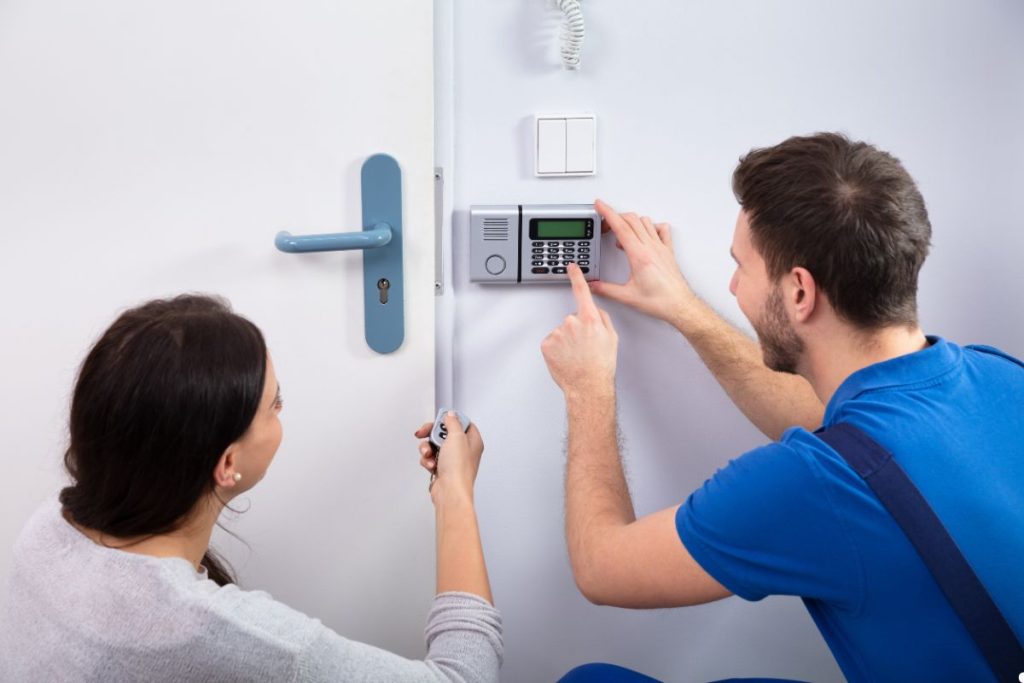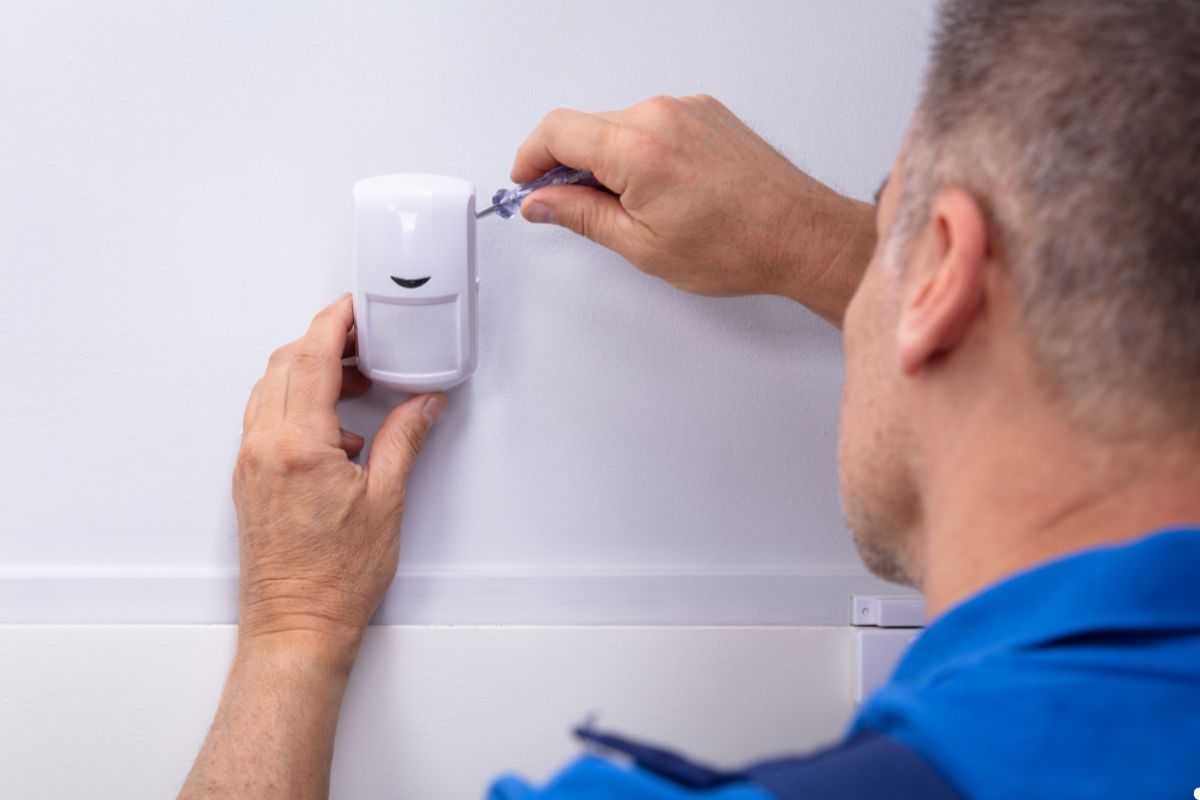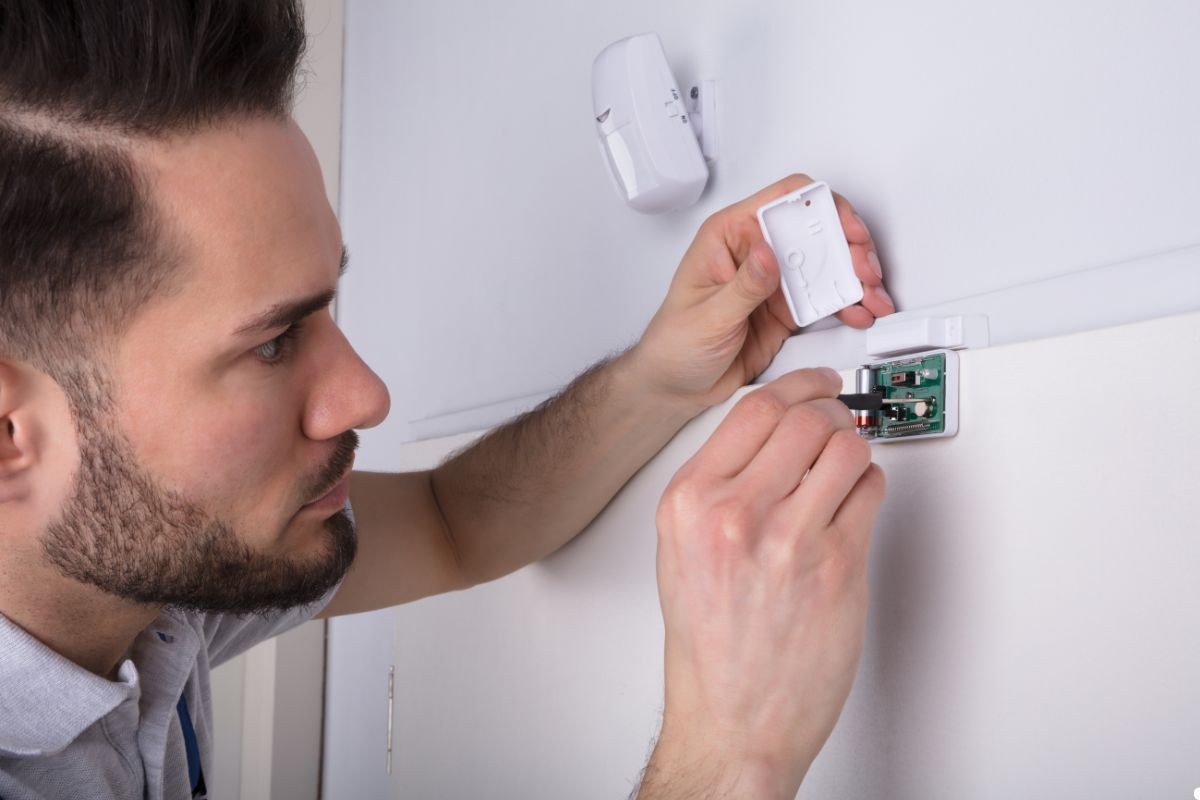
The terms “security alarm” and “burglar alarm” are often used interchangeably, leading to confusion. The core difference is that a burglar alarm primarily focuses on detecting intrusions, while a security alarm offers a broader range of protection, including fire, carbon monoxide, and other hazards. Choosing the right system depends on your specific needs, and this article will help you understand those differences. If you’re ready to discuss your options now, Call us for a free consultation!
Understanding the Basics
What is a Burglar Alarm?
A burglar alarm, at its core, is designed to detect unauthorized entry into your property. Its primary function is to alert you, and potentially a monitoring service, when someone attempts to break in. These systems typically rely on:
- Door and Window Sensors: These trigger an alarm when a door or window is opened while the system is armed.
- Motion Detectors: These sensors detect movement within a designated area, indicating a potential intrusion.
The focus is squarely on preventing and responding to burglary. A basic burglar alarm system is a good starting point for many homeowners, providing a crucial layer of protection.

What is a Security Alarm?
A security alarm system encompasses a much wider range of potential threats. While it includes all the features of a burglar alarm, it goes significantly further. A security alarm system can incorporate:
- Fire Alarms/Smoke Detectors: Early warning systems for fire hazards.
- Carbon Monoxide Detectors: Essential for detecting this odorless, deadly gas.
- Environmental Sensors: Some systems can even monitor for floods, extreme temperatures, or other environmental hazards.
- Medical Alert: Connect a medical alert system so you can call for help if needed.
Think of a security alarm as a comprehensive protection system for your home and family. It’s about addressing a wider range of potential risks, ensuring greater peace of mind.
Key Differences Explained
Scope of Protection
The most significant difference lies in the scope of protection. A burglar alarm primarily addresses the risk of intrusion and theft. In contrast, a security alarm offers protection against a multitude of threats, including:
- Burglary: As with a burglar alarm.
- Fire: Smoke and heat detection.
- Carbon Monoxide Poisoning: Detection of dangerous CO levels.
- Environmental Hazards: Monitoring for floods, freezing temperatures, etc.
- Medical Emergencies: Option to incorporate medical alert systems.
This broader scope makes a security alarm a more robust and comprehensive solution for many homeowners and businesses. It’s about addressing a wider spectrum of potential dangers.
Components and Sensors
The components and sensors used in each system reflect their differing scopes.
- Burglar Alarm: Typically includes door/window sensors and motion detectors.
- Security Alarm: Includes all of the above, plus smoke detectors, carbon monoxide detectors, and potentially environmental sensors.
The integration of these additional sensors is what truly distinguishes a security alarm and provides its enhanced level of protection.
Monitoring and Response
Both burglar and security alarms can be monitored, but the response protocols can vary.
- Burglar Alarm: When triggered, the alarm sounds, and a monitoring service (if subscribed to) will typically attempt to contact you and, if necessary, dispatch the police.
- Security Alarm: In addition to burglary alerts, a security alarm system’s monitoring service can also dispatch the fire department (in the event of a fire alarm) or emergency medical services (if a medical alert is triggered).
This expanded monitoring and response capability provides an extra layer of security and can be crucial in emergency situations.

Choosing the Right System for You
Assessing Your Security Needs
The best way to determine which type of system is right for you is to assess your specific security needs. Consider:
- Your Location: Is your neighborhood prone to burglaries?
- Your Home: Do you have multiple entry points?
- Your Family: Do you have young children or elderly relatives who might be vulnerable to fire or carbon monoxide poisoning?
- Your Assets: Are you looking to protect valuable possessions?
By carefully evaluating your individual circumstances, you can make an informed decision about the level of protection you need.
Budget Considerations
The cost of a security system is an important factor for most homeowners. Burglar alarms are typically less expensive than security alarms due to their simpler components and fewer monitoring options. However, the added protection of a security alarm system may be worth the investment, especially considering the potential costs of fire, carbon monoxide poisoning, or other emergencies. With our services, you get cost-effective security without compromising on quality or reliability. Consider the long-term value and peace of mind that a comprehensive security system provides. The cost of home security in general can be surprisingly affordable.
Professional Installation vs. DIY
Both burglar and security alarms can be professionally installed or self-installed. Professional installation ensures that the system is properly configured and connected to a monitoring service. DIY installation can save money but requires technical expertise. Choose the option that best suits your budget and technical skills. Consider looking into the pros and cons of both before deciding.
Conclusion
While the terms are often confused, there are distinct differences between burglar alarms and security alarms. A burglar alarm focuses solely on intrusion detection, while a security alarm offers broader protection against fire, carbon monoxide, and other hazards. Choosing the right system depends on your individual needs and budget. By carefully considering your specific security risks, you can select the system that provides the best protection for your home and family. Don’t wait, Call us today for a free consultation!
FAQ
Is a burglar alarm a type of security alarm?
Yes, a burglar alarm can be considered a basic type of security alarm, as it provides a level of protection against intrusion. However, it’s not a comprehensive security solution like a full security system.
Can I upgrade a burglar alarm to a full security system?
In many cases, yes. You can often add components like smoke detectors and carbon monoxide detectors to an existing burglar alarm system to upgrade it to a full security system. Contact a security professional to assess your existing system and determine what upgrades are possible.
How much does a security alarm system cost in the USA?
The cost of a security alarm system in the USA can vary widely depending on the size of your home, the components you choose, and whether you opt for professional monitoring. Basic systems can start around a few hundred dollars, while more comprehensive systems with professional monitoring can cost several hundred to thousands of dollars upfront, plus monthly monitoring fees. Contact us for a personalized quote.
